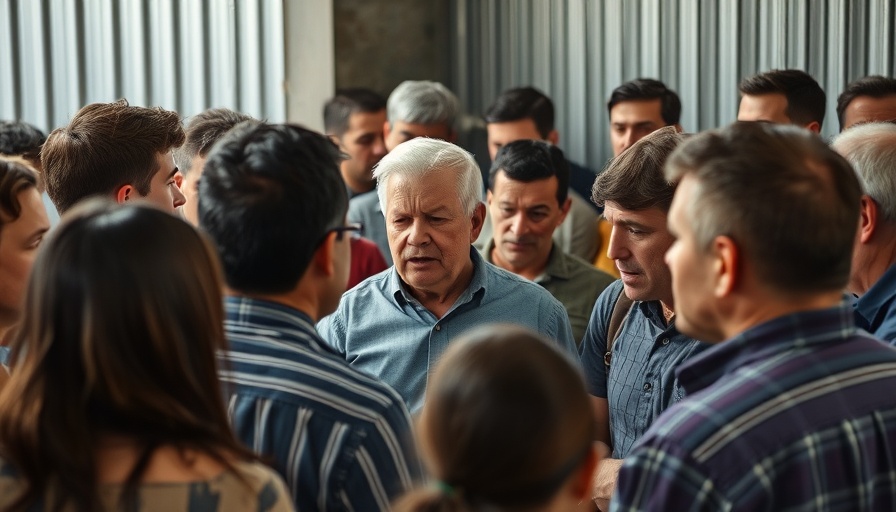
The Political Landscape in Rivers State: What You Need to Know
The recent Town Hall meeting in Rivers State has sparked a renewed discussion about the increasingly volatile political situation. As community leaders and citizens alike convened to express their concerns, tensions rose, highlighting both the local political infighting and the broader implications for governance in Nigeria. The meeting reflected a larger narrative of discontent, where constituents demanded accountability from their leaders amidst a backdrop of uncertainty characterized by allegations of autocratic governance and political manipulation.
In 'Tensions Rise at Rivers State Town Hall Meeting', the discussion dives into the political unrest affecting local governance, prompting a deeper analysis of these dynamics and their implications.
Rising Tensions and Voices Unheard
At the heart of the tensions were allegations that the state’s leadership was being controlled by a singular figure—a depiction that resonates with audiences familiar with the political dynamics in many African nations. Participants voiced their frustrations over poor governance and the apparent disconnection between elected officials and their constituents. The emotional outbursts captured during the meeting reveal a populace yearning for transparency and change. Supporters of this viewpoint, like the local attorneys and activists, argue that the current officials must be held responsible for decisions that directly impact the lives of everyday citizens.
A Deep Dive into Rivers State’s Political History
Understanding the current dynamics requires an exploration of Rivers State's political history. This region has oscillated between periods of peace and conflict, often defined by the ebbs and flows of party power struggles. Previous leaders have often leveraged regional and ethnic sentiments to consolidate control, making it essential for citizens to remain vigilant. The current dissatisfaction mirrors past periods where public trust eroded due to perceived transgressions by those in power, thereby prompting discussions about electoral reforms and participation.
The Role of the Media in Shaping Political Discourse
The media plays a crucial role in mediating these discussions. Coverage of the Town Hall meeting amplified concerns raised by citizens, with news outlets being pivotal in bringing these local grievances to public consciousness. This coverage, however, must transcend sensationalism; instead, it should focus on creating informed dialogues that empower audiences. Furthermore, as political scandals arise, the media must not shy away from scrutinizing not only leaders but also the policies affecting the populace.
Future Predictions: What Lies Ahead for Rivers State?
As tensions simmer, the question remains: what does the future hold for Rivers State? Some analysts predict that continued unrest might cause further divisions within the region, leading to a possible splintering of party allegiances as citizens gravitate towards more transparent and honest governance models. Those advocating for structural reforms believe that if citizens mobilize collectively, they could force a change that enhances democratic practices not just in Rivers, but across the country.
Actionable Insights for Citizens
Violence and dissent are not the sole avenues for change. Citizens must engage with governance through peaceful means, advocating for their rights and demanding the emergence of accountable leaders. Participation in local meetings, advocacy for transparency in governance, and awareness campaigns about civic rights can facilitate a more significant transformation in the political landscape. Together, citizens can reshape the narrative for a responsive and participatory governance structure.
 Add Row
Add Row  Add
Add 


 Add Row
Add Row  Add
Add 

Write A Comment